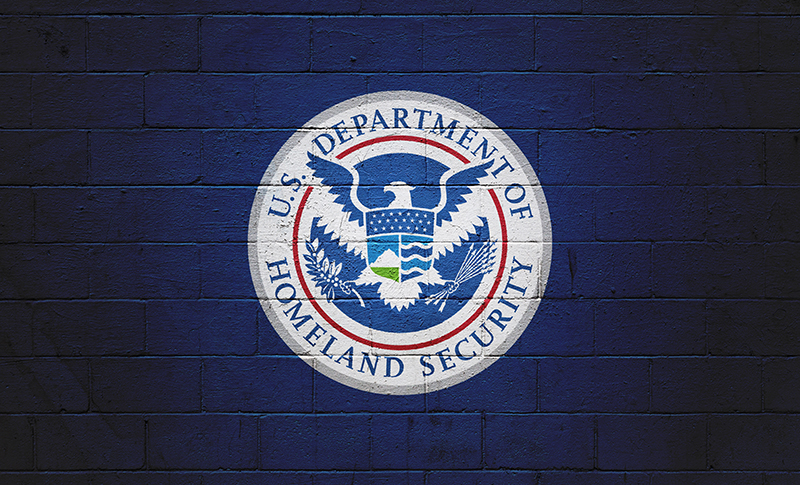
Late last year, Department of Homeland Security (DHS) Secretary Alejandro Mayorkas announced that DHS is increasing the H-2B low-skilled temporary foreign worker cap by 20,000 for the first half of fiscal year (FY) 2022. The announcement was surprising at the time because in the lead-up to the December 3 vote on the continuing resolution and the three weeks after it was passed, there was not a single word spoken by the Biden administration or its allies in the media and business that it had such authority. By comparison, there were plenty of other immigration provisions included that the administration openly boasted about securing taxpayer funding for.
This led me down a legislative rabbit hole to discover the source of this H-2B supplemental authority. The conclusion I reached was unsatisfying from a statutory interpretation standpoint.
In previous years, Congress gave the DHS secretary the authority to exceed the H-2B cap, instead of lawmakers picking a number, but that delegation occurred in omnibus funding bills, meaning legislation that funded the federal government for the remainder of the fiscal year. The situation in FY 2022 was different, however, as Congress only approved a short-term funding bill through December 3 (the FY begins on October 1) and December’s measure only extended funding into February 2022. As I wrote on December 29, it appears that the continuing resolution that only funded the government through December 3 “included language to fully authorize certain provisions from the FY 2021 Omnibus, regardless of a potential lapse in government funding (which has yet to occur).” This “novel operative language” included section 101 from the FY 2021 Omnibus, which is the H-2B supplemental authority.
On January 28, five weeks after the Mayorkas announcement, DHS and the Department of Labor (DOL) published a temporary final rule that effectuated the 20,000 H-2B increase. Despite the document running 128 pages before Federal Register formatting, the “legal analysis” establishing the supplemental authority is buried in a footnote. According to footnote 19, “Appropriations and authorities provided by the continuing resolution are available for the needs of the entire fiscal year to which the continuing resolution applies, although DHS’s ability to obligate funds or exercise such authorities may lapse at the sunset of such resolution.” The lone citation in the footnote is to a 1996 Comptroller General document regarding contributions to certain retirement funds.
The placement of this language in a footnote is curious if DHS truly believes its legal interpretation is sound. By contrast, the document goes on for pages in the body about the general legal framework of DHS’s authority as well as that specific to the statutory requirements and numerical limits on H-2Bs. Based on my experience drafting DHS regulations during the Trump administration, this 1996 statement would have commanded a robust history and analysis over the last 25 years if it was legally sound. Relegating this “novel authority” to a footnote with no other examples of its application indicates that DHS knows it is not on solid legal ground.
The allocation of the H-2B supplemental also exposes how Biden’s DHS has unlawfully been using Temporary Protected Status (TPS) to grant amnesty-lite in the absence of a congressional enactment of permanent status, or what you might call amnesty-premium. As David North previously reported, Mayorkas decided to set aside 6,500 supplemental H-2Bs for foreign workers from Haiti and the Northern Triangle countries of El Salvador, Guatemala, and Honduras. With the exception of Guatemala, the other three countries currently have TPS designations. Mayorkas designated Haiti for TPS (and unlawfully moved up the cutoff date for eligibility after the decision) and El Salvador and Honduras retain the status while the TPS terminations for both countries made under the Trump administration remain in litigation (despite clear statutory language that such decisions are not subject to judicial review).
Here’s why this is problematic: According to section 244 of the Immigration and Nationality Act, the DHS secretary may make a TPS designation due to one or more of the following circumstances: (1) ongoing armed conflict; (2) an environmental disaster; or (3) extraordinary and temporary conditions. As I’ve previously explained, “The mere existence of any of these factors is not enough for an initial designation or an extension. Instead, the law requires that the ongoing armed conflict ‘would pose a serious threat to [the] personal safety’ of the country’s nationals if returned; the environmental disaster requires that the home country is ‘unable, temporarily, to handle adequately the return’; and the extraordinary and temporary conditions must prevent the alien ‘from returning to the state in safety’.”
A nonimmigrant alien has to overcome a presumption of immigrant intent, meaning he has to convince DHS and the Department of State that he intends to return home at the expiration of his term of admission. The H-2B visa is a temporary immigration status generally issued for no more than 10 months. If the Biden administration approves an H-2B for a Haitian or an alien from one of the Northern Triangle countries, it means the U.S. government expects the alien to return home at the end of its duration. Therefore, if it is safe enough for the H-2B worker to return to his home country, it is similarly safe enough for the illegal alien with TPS to return. And, if it is safe to return, the statutory conditions for TPS cease to exist (if they ever did in the first place) and Mayorkas is required by law to terminate the designation.
The 6,500 H-2B visa carve-out was done for the obvious political reason of avoiding the optics of the surge of Haitians and Northern Triangle illegal aliens crossing the southern border. In an attempt to minimize the public fallout for its failed border policies, DHS has exposed its unlawful use of TPS as a political carrot to the advocates of unlimited immigration.
